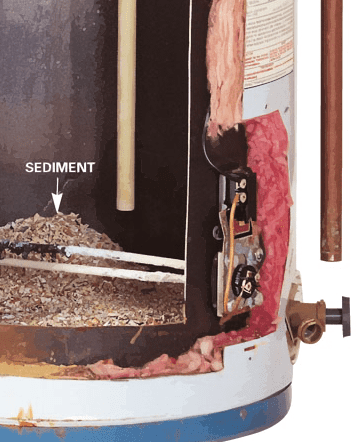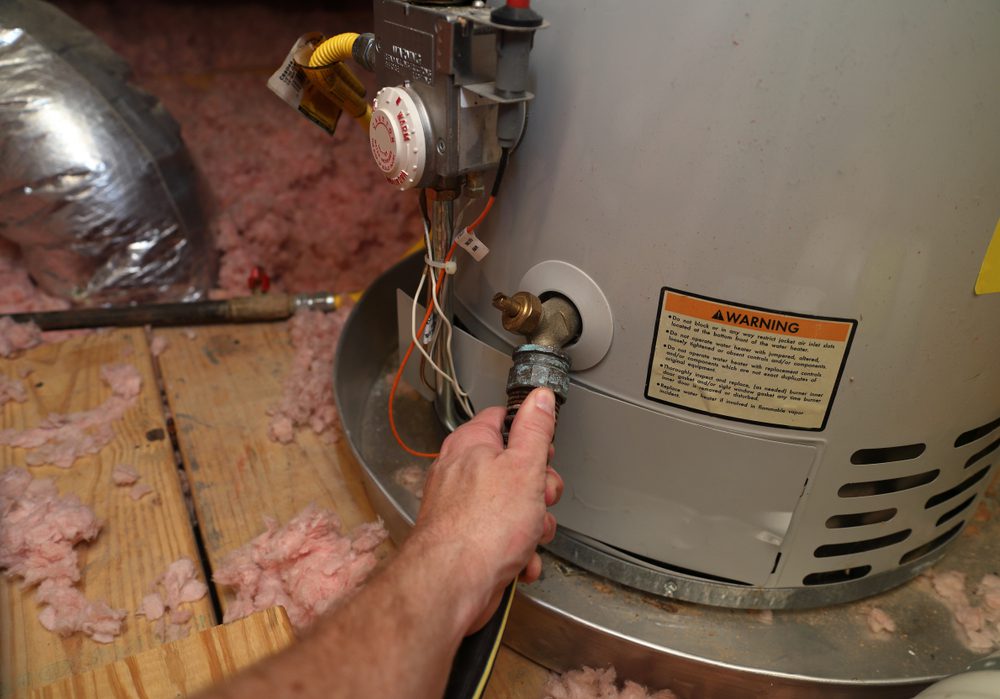Dealing with the Frequently Encountered Water Heater Emergencies
Dealing with the Frequently Encountered Water Heater Emergencies
Blog Article
Have you been looking for help about The Importance of Water Heater Maintenance?

A water heater is one of one of the most vital standard appliances that can be discovered in a house. With water heaters, you do not require to experience the anxiety of heating water by hand whenever there is a need to wash, wash, or the meals. There is constantly a possibility that your water heating unit would act up as with most mechanical tools.
It is important to keep in mind any kind of little malfunction and also tackle it quickly before things leave hand. A lot of times, your water heater begins to malfunction when there is an accumulation of debris as a result of constant use. As a preventative measure, routine flushing of your water heater is recommended to prevent sediment accumulation as well as stop practical failure.
Typical water heater emergencies and how to manage them
Inadequate warm water
It may be that the water heating unit can't support the hot water demand for your apartment. You could upgrade your water heating unit to one with a bigger ability.
Varying water temperature level.
Your hot water heater can begin generating water of various temperatures typically ice cool or scalding hot. In this circumstance, the first thing you do is to guarantee that the temperature is set to the preferred degree. If after doing this, the water temperature keeps changing during showers or other activities, you may have a faulty thermostat. There might be a need to replace either the thermostat or the heating device of your hot water heater.
Dripping hot water heater container.
A dripping storage tank could be an indication of corrosion. It could cause damages to the flooring, wall and electric gadgets around it. You could also go to threat of having your home flooded. In this situation, you ought to switch off your hot water heater, permit it to cool, and also meticulously search for the resource of the problem. Sometimes, all you need to do is to tighten up a few screws or pipeline connections in cases of small leaks. But if this does not work and also the leak persists, you could require to employ the services of a service technician for an appropriate replacement.
Tarnished or odiferous water
When this occurs, you need to recognize if the issue is from the tank or the water source. If there is no amusing scent when you run cool water, then you are specific that it is your water heating unit that is damaged. The odiferous water can be created by rust or the accumulation of bacteria or sediments in the water heating unit tank.
Conclusion
Some homeowners neglect little caution and minor faults in their water heater device. This only brings about more damages as well as a feasible complete break down of your home appliance. You must handle your hot water heater mistakes as quickly as they come near prevent more expenditures as well as unnecessary emergency problems.
With water heating systems, you do not require to go with the tension of home heating water by hand every time there is a need to take a bathroom, do the washing, or the dishes. It may be that the water heating unit can not sustain the hot water demand for your house. Your water heating unit might start producing water of different temperature levels generally ice cool or hot warm. If there is no amusing odor when you run cold water, after that you are specific that it is your water heater that is faulty. The odiferous water can be triggered by rust or the buildup of germs or debris in the water heating unit tank.
What’s Wrong With My Water Heater?
Not Enough Hot Water
You probably encounter this problem in the shower or while washing dishes. As you run your water, you’ll notice it starting to cool down. Turning up the hot faucet may not work, or it may only heat the water for a short period. Your hot water probably comes back and works normally one or two hours after you use it up.
If you’ve never had enough hot water, your heater may be too small for your home. If you haven’t had a problem until recently, there’s probably something’s wrong with your heater’s thermostat. Try adjusting it to see if you can feel a difference. Even if the thermostat’s working, the heating element itself could have burnt out. It’s also possible that a clog has restricted water flow into or out of the heater. Luckily, none of these problems are hard to fix, as long as you call them in early.
Water is Too Hot
Unregulated water heaters can make water dangerously hot. You probably have this problem if you’ve been scalded by your hot water. It’s also a likely culprit if you have trouble getting your faucets to produce a comfortable temperature. This problem is easy to fix, but it can also be a serious health hazard if you don’t address it. If you think your water is too hot, don’t doubt yourself; look into it!
Start by finding your heater’s thermostat and mark its position with a pen. Turn the thermostat to a cooler setting. Wait a couple hours to see if the problem is solved. If it isn’t, listen for boiling in the tank and look for water that comes out of the faucet steaming. In those cases, your temperature-pressure relief valve may be malfunctioning. This is a serious problem that can be dangerous, so you should have it looked at right away.
Discolored or Smelly Water
If all your water looks rusty or smells weird, there’s probably a problem with your pipes. If only your hot water looks weird, however, your water heater is probably at fault. Hot water discoloration comes in several varieties. It could look orange or brown-ish, taste rusty, or feel grainy. It could also look yellow or green-ish and taste gross or feel slimy. Either way, it’s a sign that there’s something wrong with your water heater’s tank.
Usually, hot water discoloration means sediment has built up in your tank. Sediment is made up of hardened minerals that accumulate on the inside of the water heater’s walls. When enough sediment builds up, it causes all kinds of problems–including your discolored water. Try flushing your water heater tank to clean out built up sediment. If the water still tastes rusty, your tank’s rust-preventing anode rod may have worn out. A pro can replace an anode rod easily, but without one, your tank could rust beyond repair relatively quickly.
Leaking
Water heaters can leak from several different places, and each leak means something different. If the leak is coming from a pipe above the heater, it’s possible the tank itself hasn’t been compromised. The cold inlet, hot outlet, and T&P pipes could all leak from above. Try tightening the problematic valve. If that doesn’t work, then the valve or pipe will have to be replaced.
If the leak is coming from the bottom of the tank, it’s important to determine exactly where it is. The leak could be coming out of the drain valve or your T&P valve below the tank. You can replace those valves and preserve the tank itself. If you notice the water tank itself leaking, however, that probably means it’s corroded beyond the point-of-no-return. Leaking water heaters are a big deal, so you should get yours replaced ASAP.
https://www.punctualplumberdallas.com/blog/whats-wrong-water-heater/

Do you appreciate reading up on Is Your Water Heater Leaking?? Place a comment down the page. We will be glad to see your opinions about this piece. In hopes to see you back again later on. Are you aware of somebody else who is in to the subject? Do not hesitate to promote it. Thanks a lot for going through it.
Contact for quality! Report this page